BioShock: Infinite review: The sky’s the limit
SINGAPORE — Imagine a city from early-1900s America with a difference — it’s held aloft by balloons and blimps, and people use mechanical horses and airships to travel. Ladies and gentlemen, welcome to Columbia, the city in the sky.
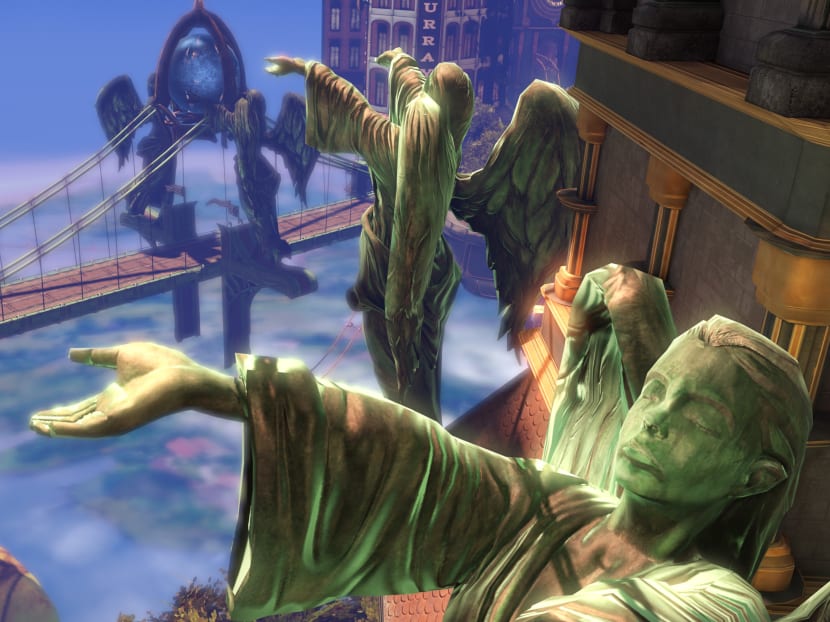
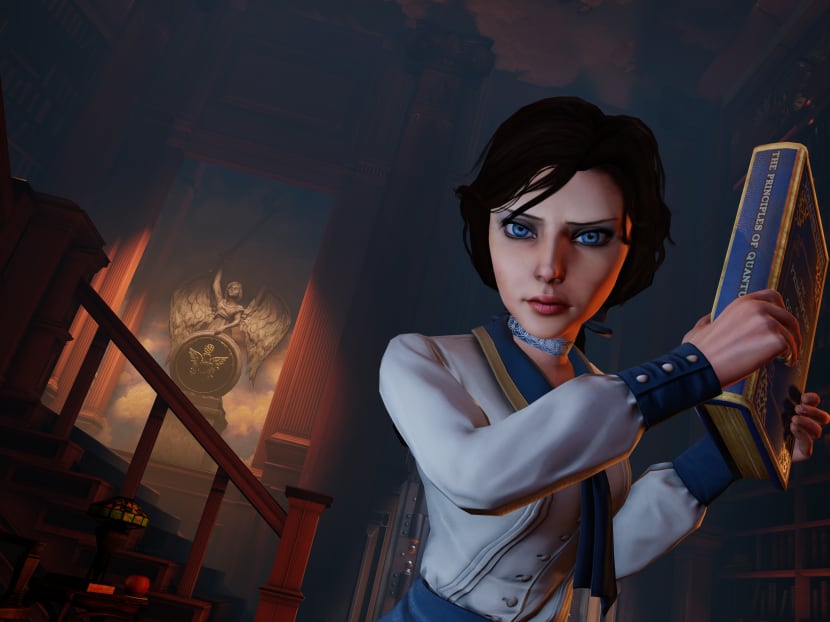
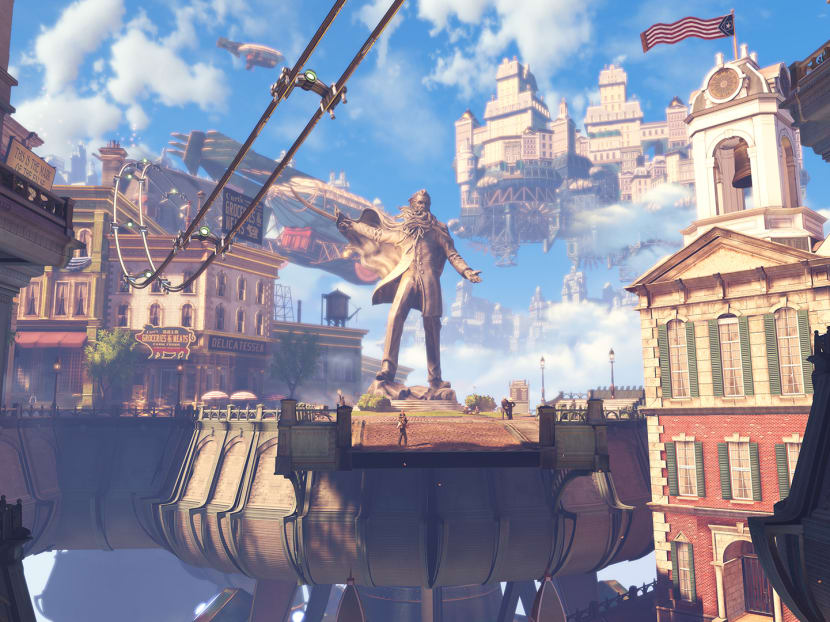
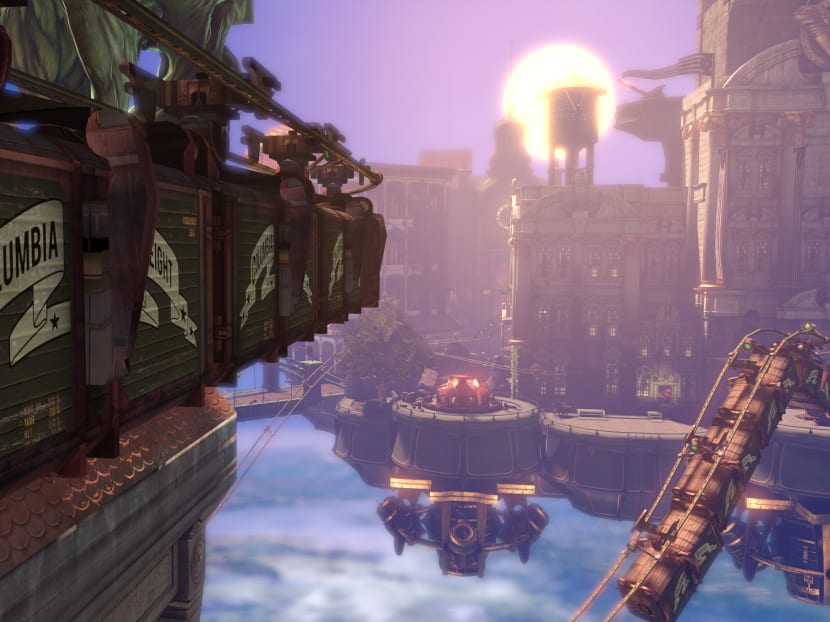

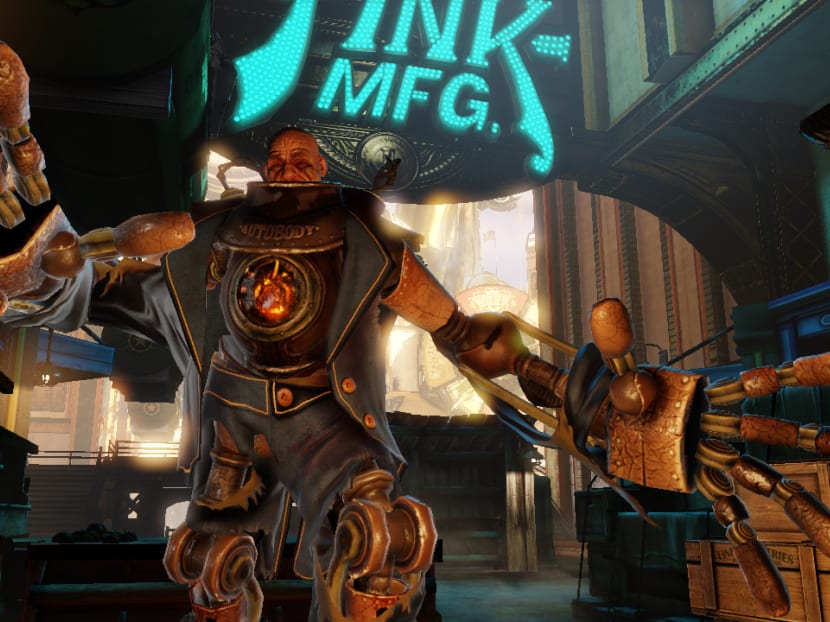
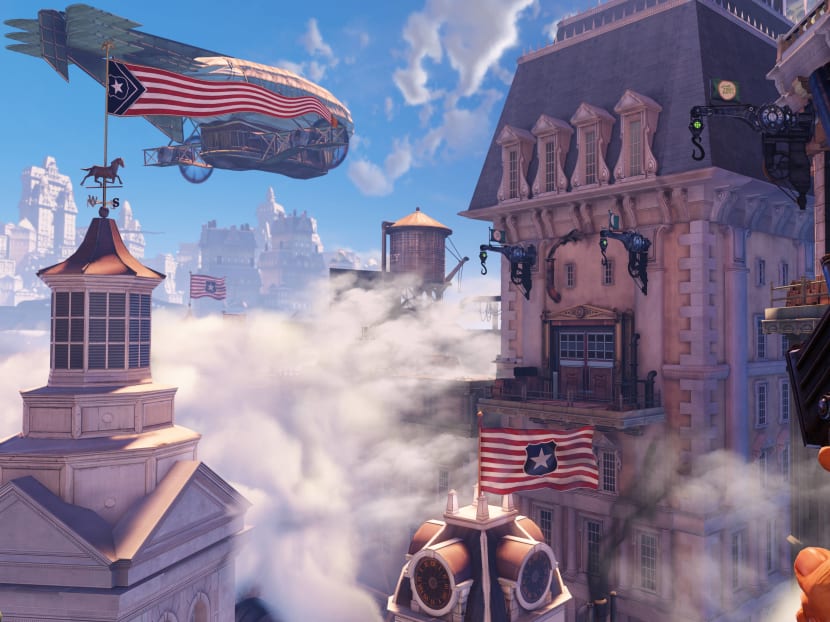
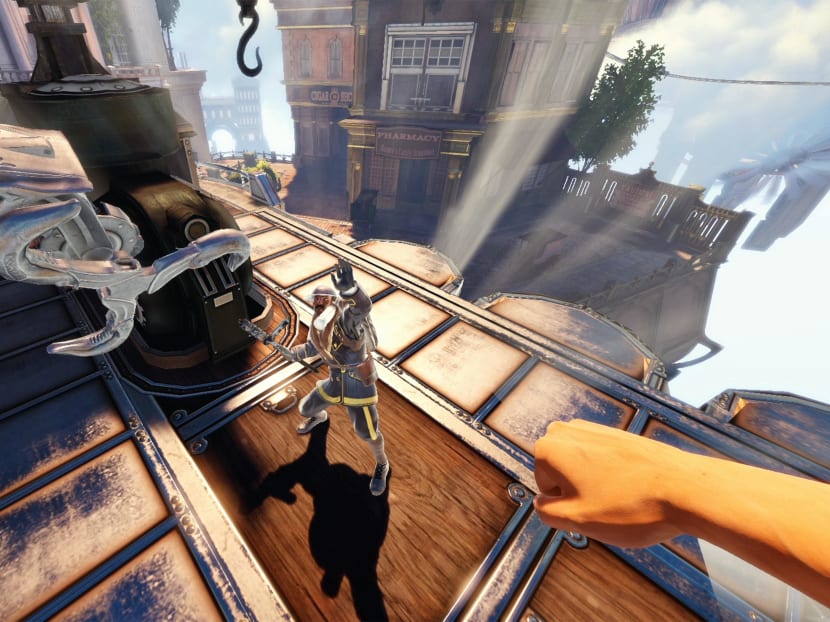
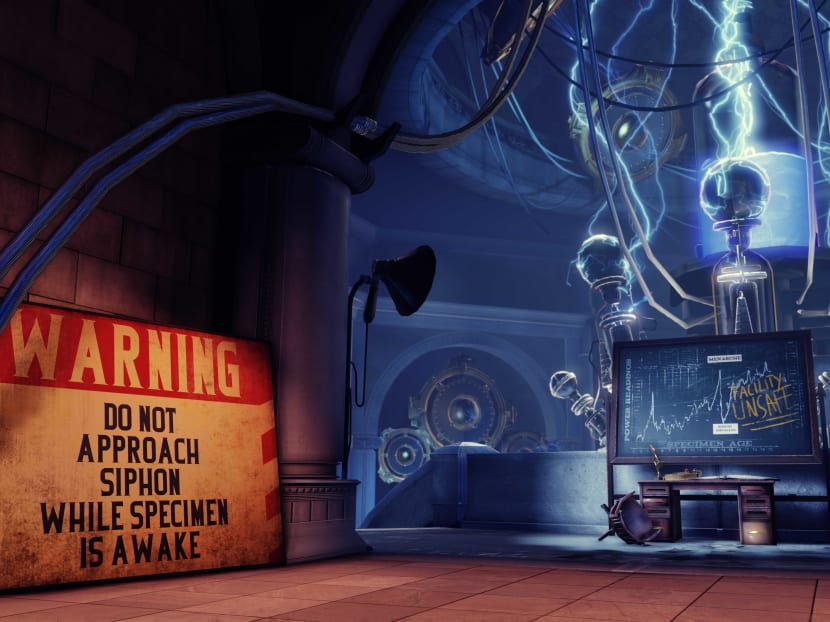
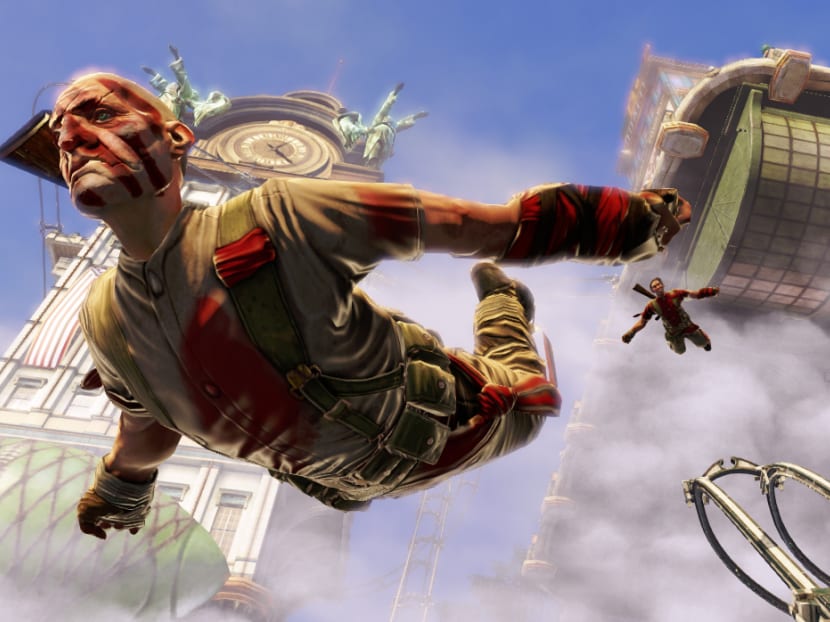
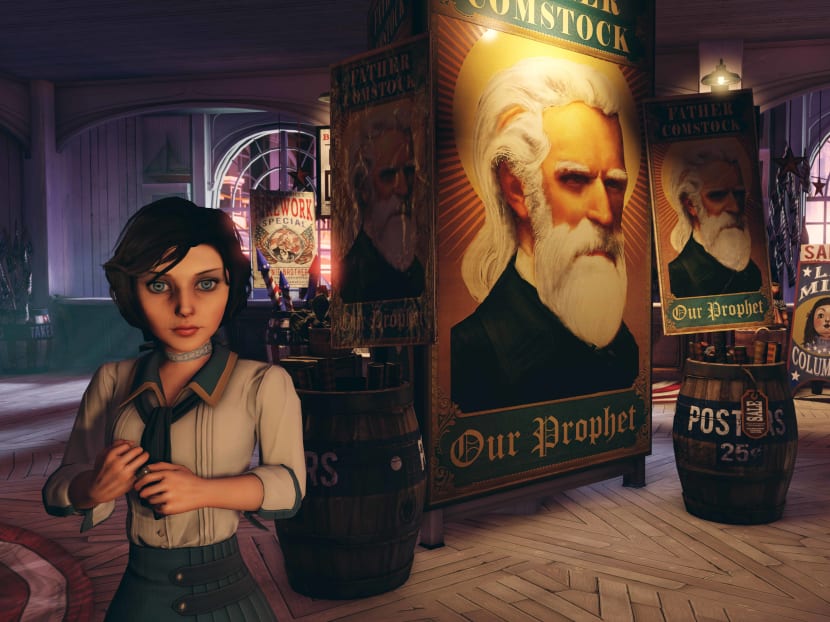
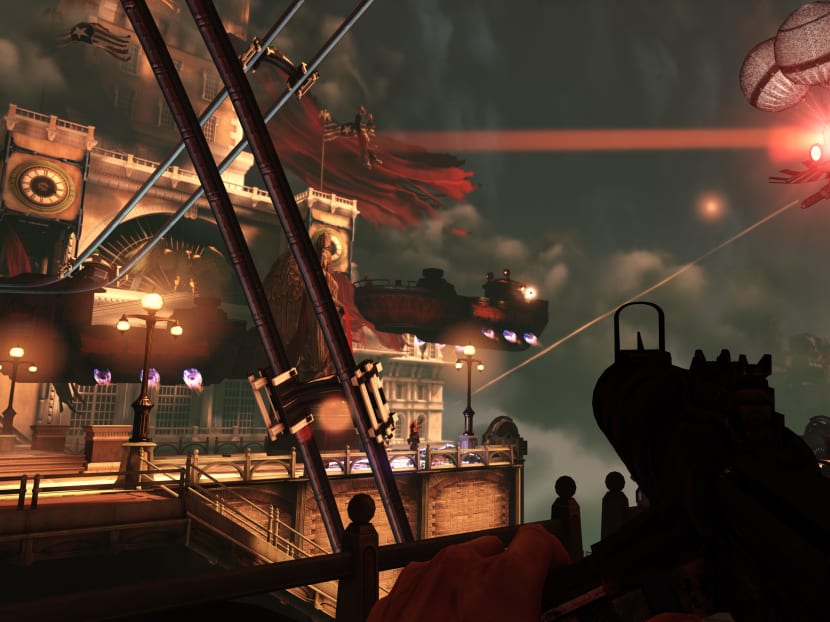
SINGAPORE — Imagine a city from early-1900s America with a difference — it’s held aloft by balloons and blimps, and people use mechanical horses and airships to travel. Ladies and gentlemen, welcome to Columbia, the city in the sky.
Columbia, set in alternate reality 1912 America, is the setting for Irrational Games’ next installment in the BioShock series, BioShock: Infinite. In the first-person shooter, you play Booker DeWitt, hired to kidnap a girl, Elizabeth, to pay off your debts. DeWitt, the grizzled war veteran, channels a Rick Deckard-esque vibe that’s both world weary and desperate. Launched into the clouds (which is literally a religious experience) into the city of Columbia, it’s up to you to extract her from her tower where she’s held by her father, founder of Columbia and prophet Father Zachary Hale Comstock.
While some might be sad that we’re leaving the underwater city of the first two BioShock games, Rapture, behind, Columbia truly is a wonderful and captivating setting, and it looks absolutely glorious, whether it is in the midst of celebrations or civil war. From art to music design, Columbia is so fully and fantastically realised that you'd wish that the zeppelins, floating islands and mechanical men were real.
However, Columbia in the midst of colourful cheer carries a sinister undertone that seethes early on before becoming obviously clear once you learn more about the game’s main villain, Father Comstock. He’s introduced to you through the praise and exaltation lavished upon him, and it’s quickly clear that the peace in Columbia is maintained by his ideologies of xenophobia and nationalism — the native, African and Chinese Americans are definitely second-clas citizens. Soon enough, the serenity of fair Columbia gets punctuated by your acts of (often extreme) violence, and it’s clear that the question you’re being asked is “is destroying the peace the citizens of Columbia had for your personal debt worth it”.
Still, freeing Elizabeth and repaying your debt would be too straightforward a tale, and Elizabeth, all beautiful and beguiling, turns out not to be quite the ingenue you’d expect her to be. Naivete transforms into clarity of purpose, and Elizabeth’s narrative clashes weaves with yours — she yearns for freedom, you aim to free her to cash in on her. Following a line of fine sidekick characters like Half-Life 2’s Alyx Vance and The Walking Dead’s Clementine, Elizabeth and DeWitt’s interaction becomes some of the best parts of BioShock: Infinite, her plight triggering a strong sense of reluctant sympathy as she traverses her heart-rending evolution. She’s also no hapless bystander — her special, reality bending ability helps reveal new locations or weapons, and other times she’s just there making sure you don’t die in combat by helping you find ammunition or health kits.
Combat in BioShock: Infinite combies guns and Vigours — magic-like powers, like the original BioShock’s Plasmids, which allows for a great mix of tactics and fun that’s wholly satisfying. It’s also not all about going in guns a-blazin’ — a touch of stealth and ingenuity will help you get past some of the game’s set-pieces, and there’s something satisfying about destroying some of the larger, overwhelming creatures. You can also enhance your abilities with upgrades you either find or buy, so make sure you keep an eagle-eye out for cash or equipment.
Your only melee weapon, the Skyhook, doesn’t just serve up bloody dismemberments. It also serves as means of travelling around Columbia’s multiple isles in the sky via tracks that work like roller coasters. This is oftentimes exhilarating — especially when you’re escaping from the “Songbird” early on, or when you’re using it to rain down death from above.
Everything in this game leads up to the final, shocking denouement. The epic and mind-blowing revelations might seem distant in the middle of the game when the pacing sags and you’re forced to revisit certain locations. But as the plot bends and twists back upon itself these things are minor quibbles, and sometimes it only becomes clear why you’re headed there only later. Still, the game is rather linear if you’re just throttling forward towards the next checkpoint, the reward lies in taking a little time to explore. The back story and the answers to all the questions you face in the game — even those you’d never thought to ask — are there, hidden in the game in one form or another, whether in a locked room, on audio recordings (known as Voxophones) or on a detour away from where the game directs you to go (which comes in a nice big green arrow if you’re ever lost).
As you start out with BioShock: Infinite, you might think it’s about racism, religiosity or the nature of reality, but at its core, it is really about the relationship between a father and daughter. Whether gamers find the experience rewarding also depends on their ability to be challenged, not just in terms of combat but in terms of exploring the themes and letting it sink in. With the added bonus of beautiful visuals and an immersive environment, BioShock: Infinite, when it ends, will sit with you for days, as one hand twitches to fire off the next Vigour, the other ponders what you have truly done. In lesser hands it can all seem pretentious, but BioShock: Infinite is a game that reaches for the sky, and succeeds. ALVIN CHONG
Rating: 4.5/5
Game Rating: M18
Price: S$74.90 for PC, PS3 and Xbox 360










